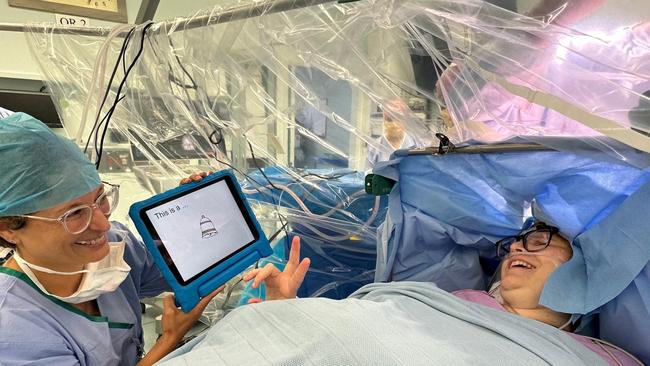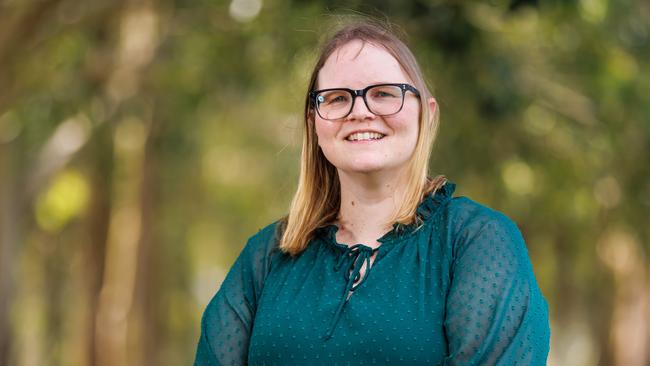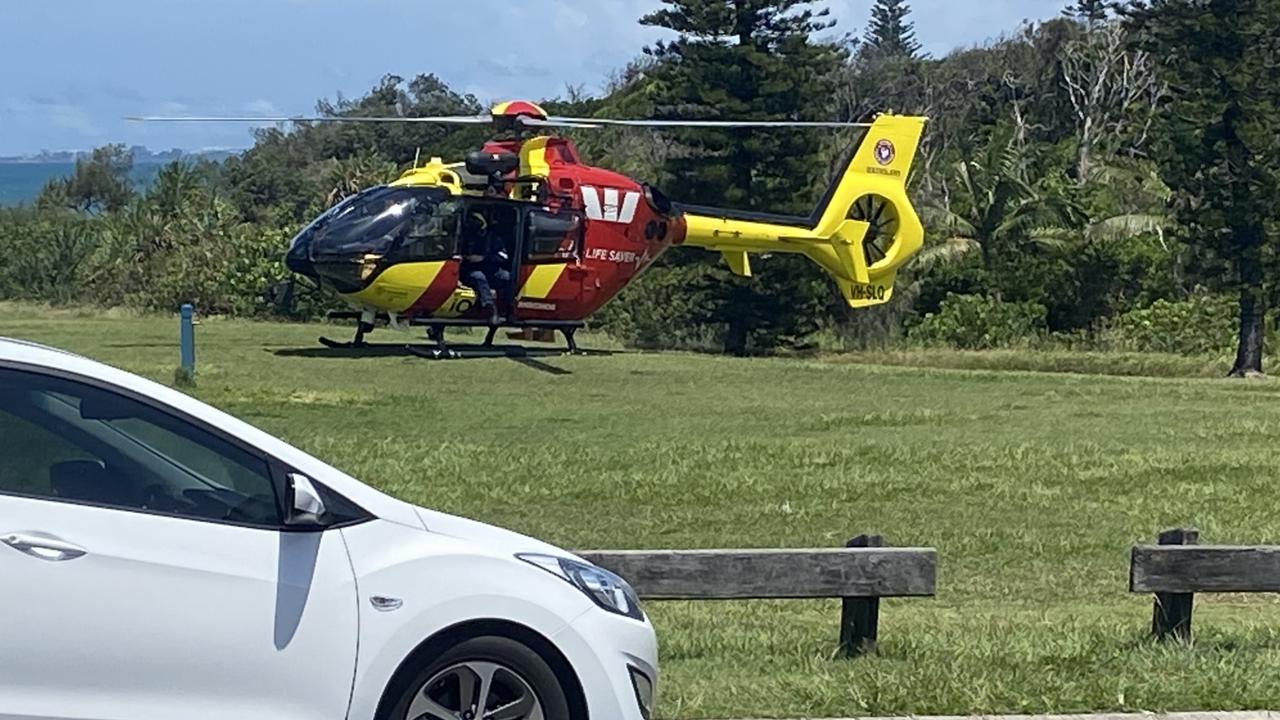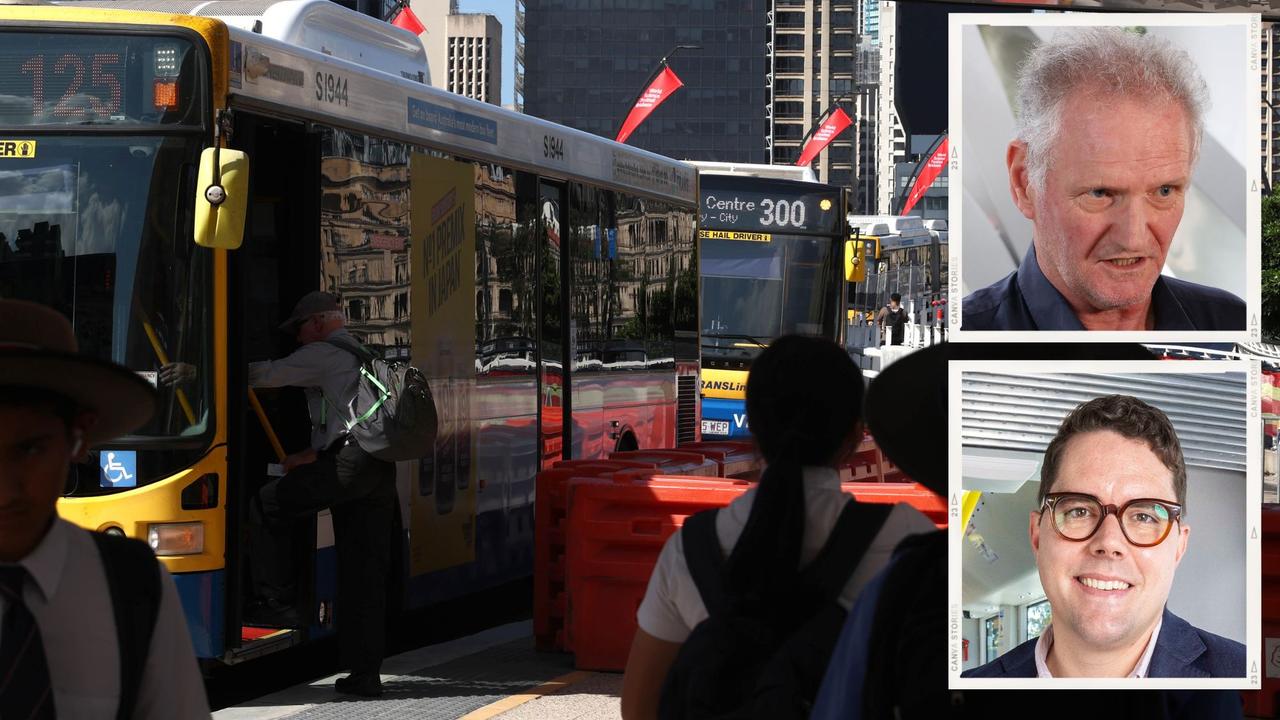Brisbane woman awake for marathon three-hour brain surgery
Clutching the hand of her speech pathologist as a surgeon opened a section of her skull – this is what Larissa Kilpatrick remembers of the mammoth operation to remove a tumour from her brain.

QLD News
Don't miss out on the headlines from QLD News. Followed categories will be added to My News.
Clutching the hand of her speech pathologist as a surgeon opened a section of her skull – this is what Larissa Kilpatrick remembers of the mammoth operation to remove a tumour from her brain.
The 33-year-old from Taigum was diagnosed in January after a seizure led doctors to discover she had brain cancer.
Three months later, she was psyching herself up to undergo a craniotomy surgery completely awake in the Royal Brisbane and Women’s Hospital.
An awake craniotomy is a procedure requiring the patient to be kept conscious during the whole surgical process, or at least a portion of the surgery.
The process is done to minimise the risk of losing brain function, with the operating team performing tasks with the patient to test language, cognition, sensation and body movement.
In Ms Kilpatrick’s case, the tumour was close to the region that controlled her speech.
“If you ask anyone, they will tell you I am a chatterbox, so I was pretty upset when I was told that,” she explained.
“Being awake was the best thing for me because if I had it taken all out asleep, it would definitely have affected my speech.
“Regardless, I had to talk myself into it.”

By her side through the three-hour surgery was Churchill Fellowship Scholarship recipient and speech pathologist Nadia DeSilva whose role was to make sure Ms Kilpatrick’s speech was preserved.
Together, the pair listened to Taylor Swift songs and underwent a number of speech exercises.
“She was obviously very nervous when she went into the surgery, but she participated very well,” Ms De Silva said. “I got Larissa to talk and repeat words, and it had to be specific tasks related to that region.”
While she was awake for the entire process, Ms Kilpatrick only has vague memories of the procedure, including how she was gripping Ms De Silva’s hand “as tight as she could”.
“I don’t remember much but I do remember seeing all of the team’s faces and thinking ‘okay I’ve got this, this is fine’,” she said.
Six months on and almost a year of chemotherapy left of her treatment, Ms Kilpatrick said she continues to improve day by day.
“You have your good and bad days but … having my partner and family has helped me through, I am very lucky to have them,” Ms Kilpatrick added. “On those bad days, I just try to remember that the awake surgery gave me another chance and extra time to live my life.
“I can’t wait to be able to exercise.”



